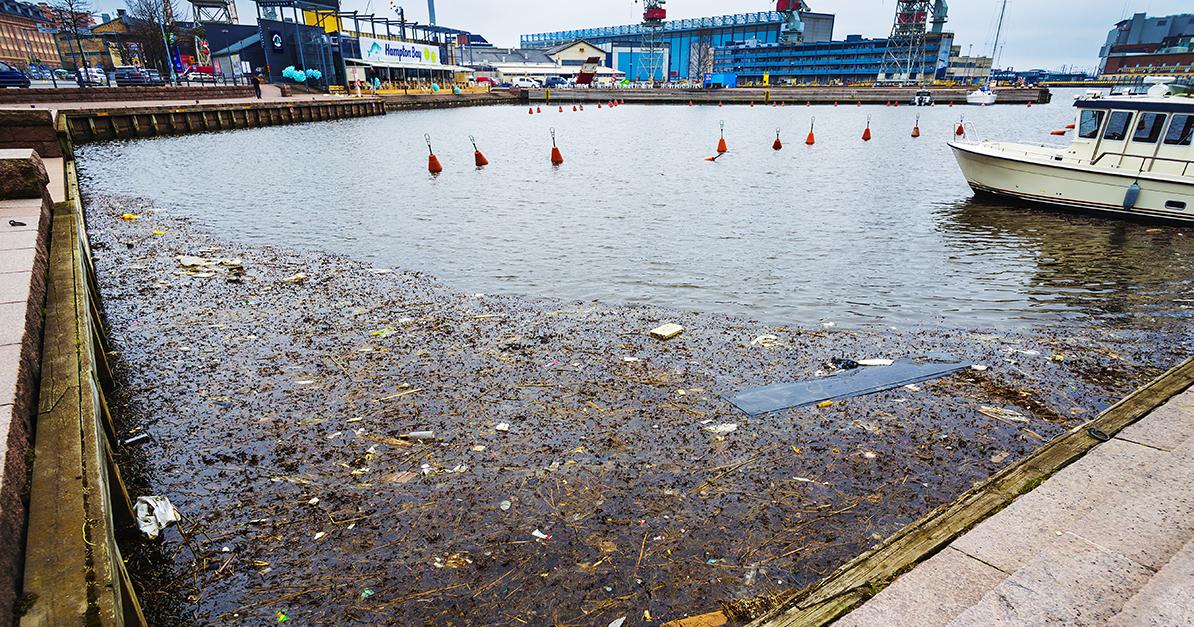Environmental legislation on maritime transport will be reformed – focus on waste management

The legislation on the delivery of waste from ships to ports will be updated. The aim is to improve the treatment and reception of waste in ports, which will reduce the generation of marine litter and, in particular, the discharge of plastic into the seas.
Amendments will be made to the Act on Environmental Protection in Maritime Transport, as required by the June 2019 revision of the EU Directive on port reception facilities for the delivery of waste from ships. The Directive (EU) 2019/883 promotes the provision of facilities for the reception of waste in ports and the delivery of waste from ships to ports. The arrangements for the payment of a waste fee will also be reformed in order to ensure that the waste will be delivered to the port on a regular basis.
The Directive harmonises the EU legislation with the MARPOL Convention of the International Maritime Organization (IMO) for the Prevention of Pollution from Ships. The key concepts such as advance waste notification, delivery of waste to reception facilities and the adequacy of the facilities will be clarified. In addition, the provisions on exemptions for ships in scheduled traffic, for example, will be harmonised. In future, the definition of waste from ships will also cover new waste categories in accordance with Annex VI to MARPOL, in particular residues from exhaust gas cleaning systems.
Changes to waste fees
The payment of waste fees will be reformed. A fee will be introduced across the EU that will entitle ships to deliver all garbage on board to a port regardless of the amount of waste left in the port by the ship. Such a system is already in place in the Baltic Sea countries, including Finland. In Finland, the payment of fees based on the recommendation of the Commission for the Protection of the Marine Environment of the Baltic Sea (HELCOM) covers not only garbage but also oily waste and sewage.
Fishing and recreational craft are also included in the payment system defined in the Directive. In future, the port charges must also cover the reception of waste from these vessels, irrespective of the quantity involved. The payment system system also covers waste collected in nets during fishing operations. In addition, according to the Directive, fishing and recreational vessels of more than 45 metres in length will be required to submit an advance waste notification.
Separate collection of different types of waste from ships will have to be arranged in ports. For example, garbage will be separated on board ships in accordance with international rules. The separate collection can be used to ensure that the waste will be recycled or reused. In the future, ports will have to grant discounts on waste fees to vessels that manage their waste in an environmentally friendly manner.
More monitoring
Monitoring will also be increased. In the future, at least 15% of the total number of individual ships calling in the ports annually will be inspected. The monitoring of ships will follow a risk-based approach.
Despite developments in international regulation on emissions, discharges of waste at sea still occur, which is causing damage to the environment. There are many reasons for discharging waste into the sea: adequate port reception facilities have not always been available in ports across the EU, enforcement has often been insufficient and there has been a lack of incentives to deliver the waste onshore. These problems are being addressed by the Directive. In Helsinki, for instance, the capacity to receive waste is good, and foreign cruise ships are also delivering their sewage in the ports.
The legislative project also explores the possibility of extending the introduction of administrative sanctions to cover ships violating the emission requirements, for example with regard to sulphur emissions. The aim is also to introduce the legislative amendments required by the Hong Kong International Convention for the Safe and Environmentally Sound Recycling of Ships.
What next?
The Ministry of Transport and Communications is preparing legislation that will bring into force the amendments required by the Directive in Finland. During the project, consultation events will be arranged for the key stakeholders.
The aim is to submit a draft government proposal for comments in spring 2020. The legislative amendments will enter into force no later than June 2021. The progress of the project can be monitored through the Gateway to Information on Government Projects.
Inquiries:
Päivi Antikainen, Director of Unit, tel. +358 50 382 7101, [email protected]
Sirkku Jaakkola, Senior Specialist, tel. +358 50 470 8030, [email protected]
Ville Rinkineva, Coordinator, tel. +358 46 721 9125, [email protected]



